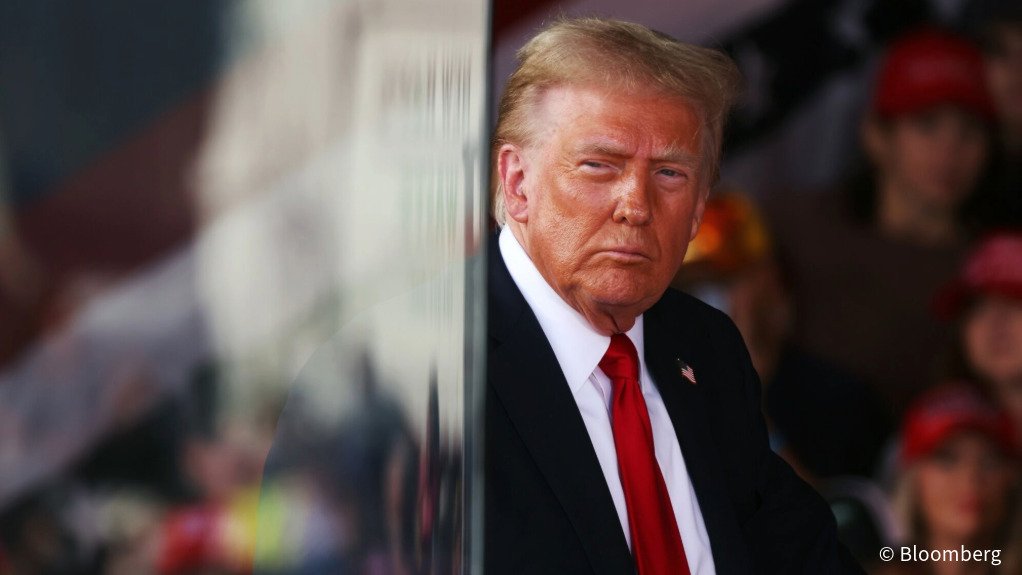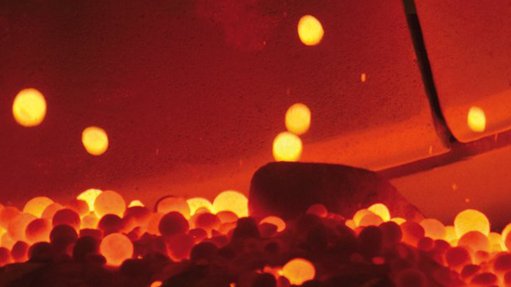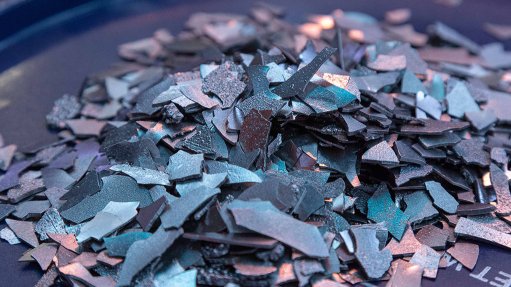Trump orders tariff probe on all US critical mineral imports
US President Donald Trump on Tuesday ordered a probe into potential new tariffs on all US critical minerals imports, a major escalation in his dispute with global trade partners and an attempt to push back on industry leader China.
The order lays bare what manufacturers, industry consultants, academics and others have long warned Washington about: that the US is overly reliant on Beijing and others for processed versions of the minerals that power its entire economy.
China is a top global producer of 30 of the 50 minerals considered critical by the US Geological Survey, for example, and has been curtailing exports in recent months.
Trump signed an order directing Commerce Secretary Howard Lutnick to begin a national security review under Section 232 of the Trade Expansion Act of 1962. That is the same law Trump used in his first term to impose 25% global tariffs on steel and aluminum and one he used in February to launch a probe into potential copper tariffs.
U.S. dependency on minerals imports "raises the potential for risks to national security, defense readiness, price stability, and economic prosperity and resilience," Trump said in the order.
Within 180 days, Lutnick is required to report his findings to the president, including whether to impose tariffs. Were Trump to then impose a tariff on a nation's critical minerals, the rate would supersede the reciprocal tariffs Trump imposed earlier this month, according to the White House.
The review will assess US vulnerabilities for the processing of all critical minerals - including cobalt, nickel and the 17 rare earths, as well as uranium - how foreign actors could be distorting markets, and what steps could be taken to boost domestic supply and recycling, according to the order.
The US currently extracts and processes scant amounts of lithium, has only one nickel mine but no nickel smelter, and has no cobalt mine or refinery. While it has several copper mines, the US has only two copper smelters and is reliant on other nations to process that key red metal.
The order takes a broad view of processing as all the steps after rock is taken out of the ground and where they are done. It also directs a review of US capabilities to produce so-called semi-finished goods, including battery cathodes and wind turbines.
The move is the latest in Trump's effort to jumpstart US minerals production and processing. The president last month signed an order directing federal agencies to create a list of US mines that could be quickly approved and federal lands that could be used for minerals processing.
Still, it takes years to build a new mine and processing facility, a timeline that has sparked concern about where the US could procure minerals were tariffs broadly imposed.
"Ultimately the US gets certain minerals from China because there are not alternative supplies elsewhere," said Gracelin Baskaran, director of the critical minerals security program at the Center for Strategic and International Studies.
'FULL SCOPE'
Beijing earlier this month placed export restrictions on rare earths in response to Trump's tariffs, a move that further exacerbated supply concerns amongst Trump officials.
Rare earths are a group of 17 elements used across the defense, electric vehicle, energy and electronics industries. The United States has only one rare earths mine and most of its processed supply comes from China.
The restrictions from China were seen as the latest demonstration of the country's ability to weaponize its dominance over the mining and processing of critical minerals after it put outright bans on the export of three other metals last year to the U.S. and slapped export controls on others.
Chinese mining companies across the globe have been flooding markets with cheap supplies of many critical minerals in recent years, fueling calls from industry and investors for Washington to support US projects.
The White House also said Trump is focused on closing tariff loopholes. As with other products, the supply chain for critical minerals processing involves multiple countries.
"An effective policy should take into account the full scope of the supply chain to level the global playing field," said Abigail Hunter, executive director of SAFE's Center for Critical Minerals Strategy.
Article Enquiry
Email Article
Save Article
Feedback
To advertise email advertising@creamermedia.co.za or click here
Announcements
What's On
Subscribe to improve your user experience...
Option 1 (equivalent of R125 a month):
Receive a weekly copy of Creamer Media's Engineering News & Mining Weekly magazine
(print copy for those in South Africa and e-magazine for those outside of South Africa)
Receive daily email newsletters
Access to full search results
Access archive of magazine back copies
Access to Projects in Progress
Access to ONE Research Report of your choice in PDF format
Option 2 (equivalent of R375 a month):
All benefits from Option 1
PLUS
Access to Creamer Media's Research Channel Africa for ALL Research Reports, in PDF format, on various industrial and mining sectors
including Electricity; Water; Energy Transition; Hydrogen; Roads, Rail and Ports; Coal; Gold; Platinum; Battery Metals; etc.
Already a subscriber?
Forgotten your password?
Receive weekly copy of Creamer Media's Engineering News & Mining Weekly magazine (print copy for those in South Africa and e-magazine for those outside of South Africa)
➕
Recieve daily email newsletters
➕
Access to full search results
➕
Access archive of magazine back copies
➕
Access to Projects in Progress
➕
Access to ONE Research Report of your choice in PDF format
RESEARCH CHANNEL AFRICA
R4500 (equivalent of R375 a month)
SUBSCRIBEAll benefits from Option 1
➕
Access to Creamer Media's Research Channel Africa for ALL Research Reports on various industrial and mining sectors, in PDF format, including on:
Electricity
➕
Water
➕
Energy Transition
➕
Hydrogen
➕
Roads, Rail and Ports
➕
Coal
➕
Gold
➕
Platinum
➕
Battery Metals
➕
etc.
Receive all benefits from Option 1 or Option 2 delivered to numerous people at your company
➕
Multiple User names and Passwords for simultaneous log-ins
➕
Intranet integration access to all in your organisation





















